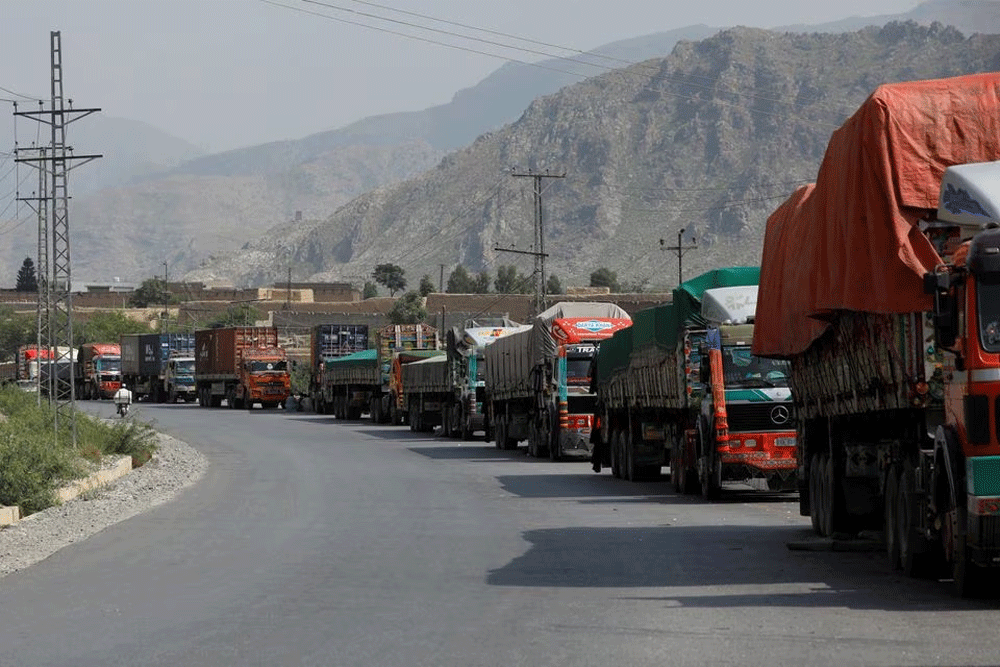Islamabad, May 18, 2025: In a decisive move to crack down on the misuse of Afghan Transit Trade, the Federal Board of Revenue (FBR) has now imposed a 10% processing fee on a wide range of commercial goods heading to Afghanistan via Pakistan.
The primary aim of this new fee structure is to deter tax evasion and protect Pakistan’s trade interests, especially as Afghan Customs duties remain significantly lower.
According to a fresh statutory regulatory order, SRO.816(I)/2025, issued by the FBR, this amendment enhances the earlier SRO.1380(I)/2023, which already applied the same 10% processing fee to categories like confectioneries, garments, footwear, machinery, and home textiles.
READ MORE: IMF Slashes Pakistan GDP to 2.6%, Exports Dip Ahead
The revised SRO now broadens the fee’s scope to include various other goods transiting through Pakistan into Afghanistan.
This change follows recommendations by the Ministry of Commerce, which flagged alarming trends in transit trade exploitation.
It cited that the low Afghan Customs duties, in contrast to Pakistan’s higher tariff regime, were encouraging misuse by traders from both sides of the border.
To mitigate this, the Ministry advised two major reforms:
- Replacing the Revolving Insurance Guarantee with a 100% bank guarantee based on the assessed value of the goods.
- Imposing a 10% ad valorem processing fee on Afghan-bound transit goods, particularly where cargo volumes were rising disproportionately.
The updated list of affected goods includes an array of industrial and technological equipment such as:
- Construction and lifting machinery like cranes, hoists, jacks, and excavators.
- Agricultural tools including threshers, balers, and milking machines.
- Electrical and digital appliances such as video cameras, computers, switches, and transformers.
- Electronic waste and scrap, which is increasingly scrutinized under trade compliance norms.
Read More: Bangladesh Eases Visa Restrictions for Pakistani Nationals
Trade experts say this move is long overdue. “It’s a corrective step to plug revenue leakages and ensure fair trade practices,” said a senior customs analyst. “Pakistan cannot afford to be a backdoor entry point for duty-free goods when domestic manufacturers and importers are paying full dues.”









